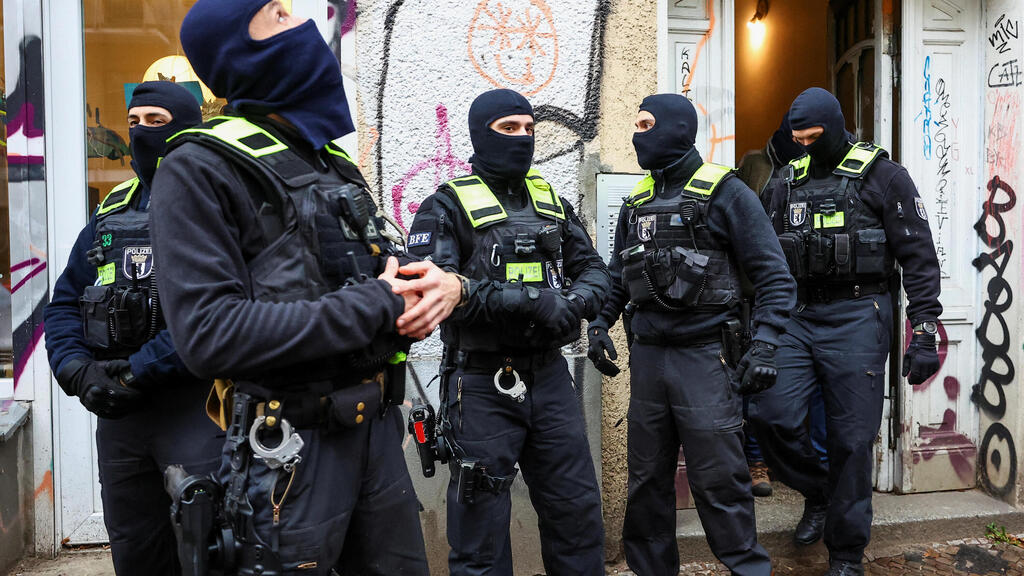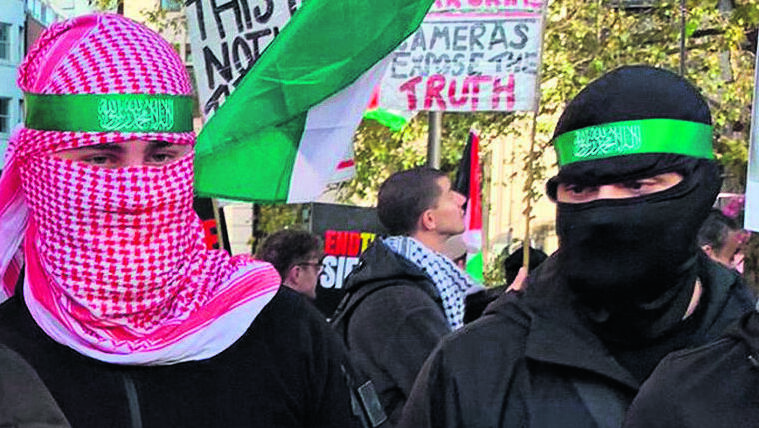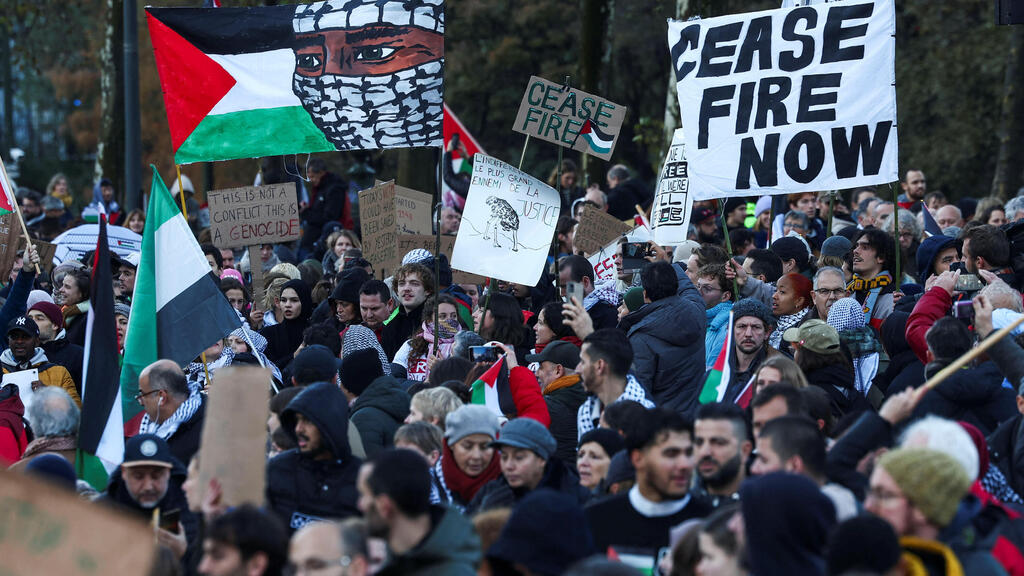European security officials are seeing a growing risk of attacks by Islamists radicalized by the Israel-Hamas war, with the biggest threat likely to come from "lone wolf" assailants who are hard to track. More than 10 intelligence and police officials in five European countries including Britain, Germany and France told Reuters they are increasing surveillance of Islamist militants.
Read more:
This will put a further burden on resources already stretched by dealing with perceived threats from Russia, China and Iran, in what London police chief Mark Rowley calls "one of the most challenging convergence of threats I have ever seen."
A British security official said the war in Gaza was likely to become the biggest recruiter for Islamist militants since the Iraq war in 2003, and that calls for attacks on Jewish and Western targets had risen in Europe.
A German source briefed by intelligence services said the threat to civilians was the highest in Germany's recent history, with dangers coming from Islamist militants, far-right groups and Russia.
Two Islamist militant attacks in France and Belgium last month killed three people, and these two countries, Austria, Slovenia and Bosnia-Herzegovina have raised their terrorism threat alert levels. Italy has re-imposed it border controls with Slovenia, citing the risk of militants entering the country. "There is going to be a blowback that is going to be felt for years," the British official said.
Deaths from Islamist assaults in Europe surged between 2004 and 2006, when attacks were fueled by al Qaeda, and peaked again in 2015 to 2018, when they were inspired by Islamic State. The threat to Europe now is likely to look very different.
Islamic State and al Qaeda recruited thousands of foreign fighters and had the capability to plan orchestrated, synchronized assaults in Europe from the relative safety of enclaves in Iraq, Afghanistan and Syria. Islamic State and al Qaeda are now in retreat, and Hamas' main target is Israel.
Lone wolves
Security officials say the main danger for Europe is probably from attacks by "lone wolves," assailants who are radicalized, often online, but have no formal links to more established groups.
The severity of the security threat could depend on how long Israel continues its offensive against Hamas in Gaza, launched in response to the deadly Hamas attack on southern Israel on Oct. 7, and the extent of the damage to the Gaza Strip. Although a truce has come into effect in Gaza, both sides have said the war is far from over.
Jochen Kopelke, a police officer who heads Germany's largest police union, said officers were warning suspected militants they were under surveillance and carrying out raids, but the main threat was people who are "self-radicalized".
"It's only a question of time until these people carry out crimes," he said. "It's not always about them having a bomb. They can drive with a car into a gathering or attack with a knife." Kopelke said Christmas markets that will soon be opening were potential targets. An attack on a Berlin Christmas market in 2016 killed 12 people.
Many Muslims have been angered by the ferocity of the Israeli offensive, and some say European governments should have done more to restrain Israel. Peter Knoope, former deputy director of policy at the Dutch National Coordinator for Counter-Terrorism, said European counter-terrorism officials found after the Sept. 11, 2001, attacks on the United States that the best way to stop attacks was a combination of military power with prevention work based on understanding motives and grievances.
He said visits by the British, French and German leaders to Israel last month had angered some Muslim, as had some of the language used by European leaders.
"The result is that it will create an 'us-and-them' feeling with the Muslim community. It is like we have learnt nothing," Knoope said. "I am very worried when I see the polarization and I see the language being used."
Online disinformation
Muslim leaders in Europe say there has been an increase in attacks on Muslims and mosques since the Oct. 7 Hamas raid, and describe a climate of fear as disinformation spreads online. "I have never seen our society so polarized," said Iman Atta, director of British Muslim group Tell Mama (Measuring anti-Muslim Attacks).
Germany's Kopelke said a network of Salafists - ultra-conservative Islamists - had resurfaced, and a new group of pro-Hamas influencers had emerged on Instagram and TikTok. One Salafist preacher has 55,000 followers after creating an account on video app TikTok after the Hamas attack, and has shown videos questioning Israel's right to exist.
3 View gallery


German police raid home of suspected Hamas supporters
(Photo: Fabrizio Bensch / Reuters)
A host of militant groups such as Islamic State and al Qaeda have called for attacks in the West and violence against Jews although intelligence officials say the overall threat from Islamic State and al Qaeda has receded.
Only two of 16 completed "terrorist attacks" in the EU last year were "jihadist", according to Europol. Thirteen were attributed to left-wing and anarchist groups, and one to a right-wing group.
"What you have now is a threat that is more diffuse and more diverse," said Thomas Renard, director of the International Centre for Counter-Terrorisms', think tank, who said there is more radicalization occurring online than in places such as mosques.




